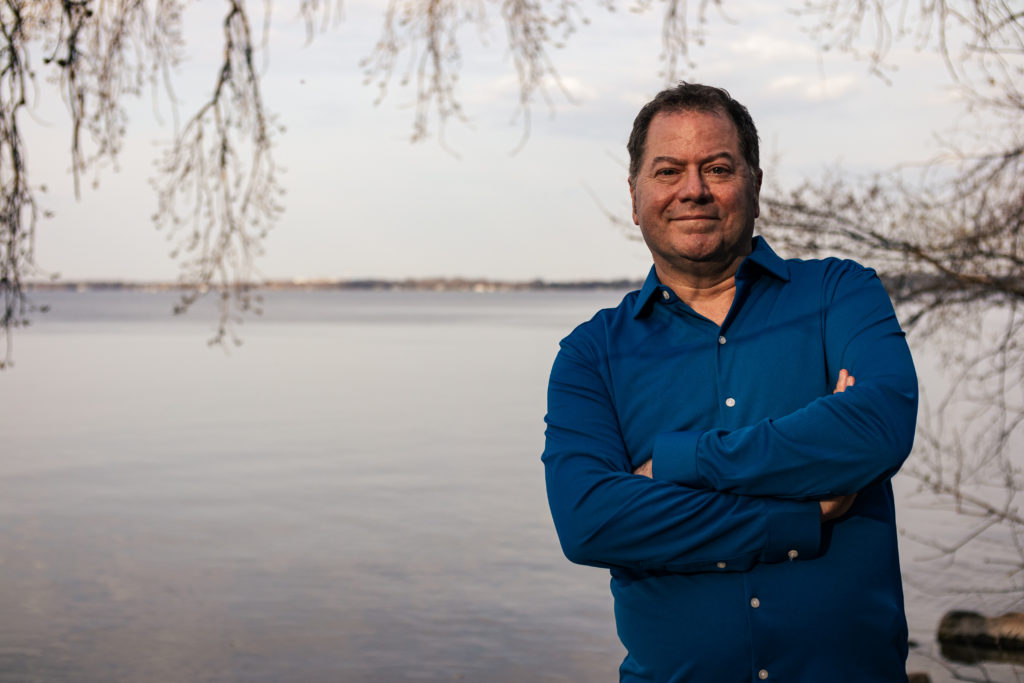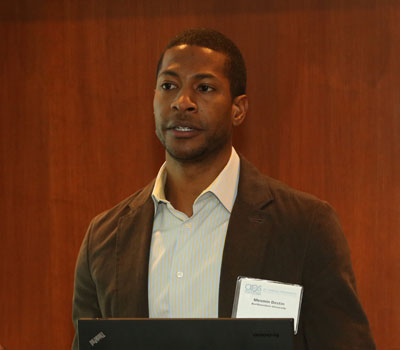Two APS Fellows Receive 2021 Guggenheim Fellowship

Two APS Fellows have been recognized with a 2021 Guggenheim Fellowship for their work in psychology: Mesmin Destin, of Northwestern University, and APS Board Member Seth Pollak, of the University of Wisconsin–Madison.
Destin (photo below) is an associate professor of psychology and education at Northwestern University. His research investigates social psychological mechanisms underlying socioeconomic disparities in educational outcomes during adolescence and young adulthood. “I feel very honored to be granted this fellowship, which I see as a means of advancing the rigor and social contribution of psychological science,” he told APS.

Pollak (photo at top) is known for his groundbreaking research on children’s emotional development. The Letters and Science Distinguished Professor of Psychology at the University of Wisconsin–Madison, he is also an affiliate of the Waisman Center and the Institute for Research on Poverty. The news about the fellowship was “very thrilling and delightful,” he said.
Destin and Pollak are among a diverse group of 184 artists, writers, scholars, and scientists chosen among more than 3,000 applicants to receive the Guggenheim Fellowship in 2021. Since 1925, the John Simon Guggenheim Memorial Foundation has granted nearly $400 million in fellowships to individuals who include more than 125 Nobel laureates, members of all the national academies, and winners of internationally recognized honors including the Pulitzer Prize, the Fields Medal, the Turing Award, the Bancroft Prize, and the National Book Award.
Guggenheim Fellowships are one-time grants that allow recipients the time and creative freedom to complete their research, book, or other projects. Pollak will use his grant to work on a book addressing the gap between theories of emotion and data drawn from developmental science. “The question of how emotions are learned holds both basic and applied significance,” he said. “Without understanding the specific mechanisms and processes underlying emotional change, it is difficult to create effective interventions for children who are experiencing challenges in their social-emotional functioning. I will try to articulate the ways in which early social experiences have implications for later complex behaviors that explain puzzling and problematic health, social, and educational issues.”
Other APS Fellows to receive Guggenheim fellowships in recent years include Alison Gopnik (2020), for her study of children’s learning and development; APS Immediate Past President Lisa Feldman Barrett (2019), renowned for her revolutionary research on the neuroscience of emotion; Jennifer Richeson (2015), whose research focuses on cultural diversity and social group membership, and Fei Xu (2018), who studies cognitive and language development in infants and children.





APS regularly opens certain online articles for discussion on our website. Effective February 2021, you must be a logged-in APS member to post comments. By posting a comment, you agree to our Community Guidelines and the display of your profile information, including your name and affiliation. Any opinions, findings, conclusions, or recommendations present in article comments are those of the writers and do not necessarily reflect the views of APS or the article’s author. For more information, please see our Community Guidelines.
Please login with your APS account to comment.